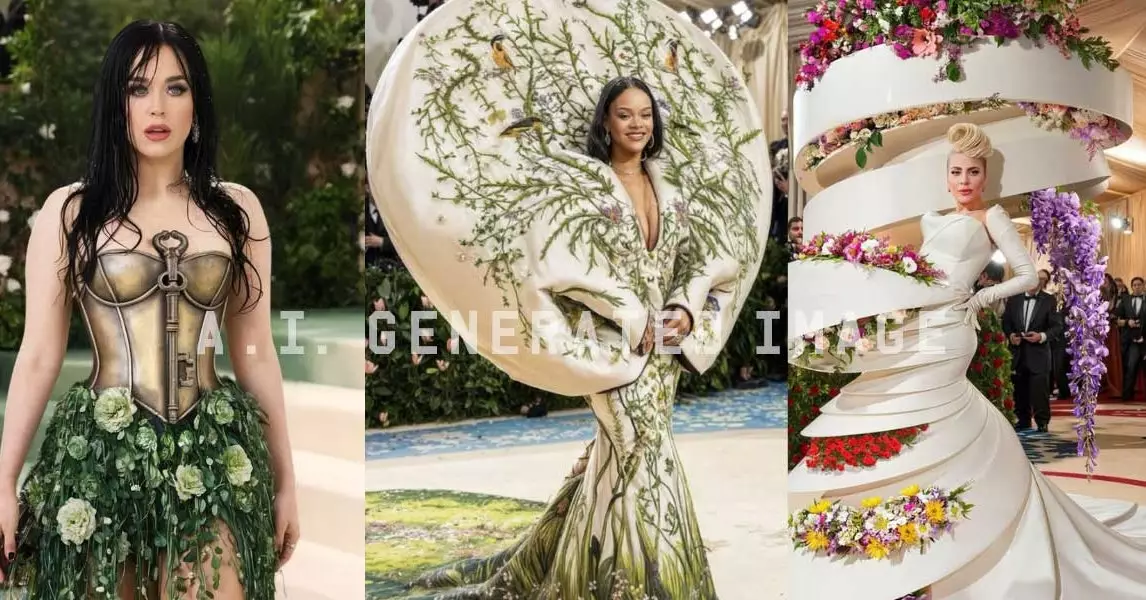The Met Gala, known for being one of the most highly anticipated events in the entertainment industry, recently made headlines not only for the extravagant outfits worn by celebrities but also for the rise of generative AI deepfakes stealing the spotlight. Instead of focusing solely on the music and entertainment stars walking the red carpet, people were captivated by AI-generated images of celebrities like Katy Perry and Rihanna in stunning outfits that never actually graced the event.
One of the most striking examples of this phenomenon was a post featuring Katy Perry in a breathtaking dress adorned with intricate floral designs that transitioned into realistic-looking moss. With nearly 15 million views, this image quickly spread across social media platforms. However, a closer look revealed that the photo was not real, accompanied by a Community Note clarifying its AI-generated nature. Similarly, Rihanna, Dua Lipa, and Lady Gaga also became unwitting subjects of deepfake images circulating online, showcasing how easily manipulated visuals can shape perceptions.
The emergence of generative artificial intelligence has revolutionized the creation and dissemination of images, allowing for seamless manipulation of visuals for various purposes. In the case of the Met Gala deepfakes, fans took advantage of AI technology to virtually dress their favorite celebrities in custom outfits, blurring the lines between reality and fiction. This rapid spread of deepfake content highlights the potential of AI to influence and deceive audiences, raising ethical concerns about the authenticity of digital media in the entertainment industry.
As deepfake technology continues to advance, it is crucial for both creators and consumers of media to exercise caution and critical thinking when engaging with online content. The proliferation of AI-generated images poses challenges to distinguishing between real and fake, challenging the credibility of digital representations in the entertainment sector. By understanding the implications of generative AI deepfakes, industry professionals and audiences alike can navigate this evolving landscape with vigilance and skepticism.
The prevalence of generative AI deepfakes at events like the Met Gala underscores the transformative power of technology in shaping visual culture. By exploring the intersection of artificial intelligence and entertainment, we uncover new possibilities and risks associated with digital media manipulation. As the lines between reality and virtuality blur, it becomes imperative to approach AI-generated content with a critical eye and a discerning mind. Only by acknowledging the potential of deepfake technology can we effectively navigate its impact on the entertainment industry.


Leave a Reply